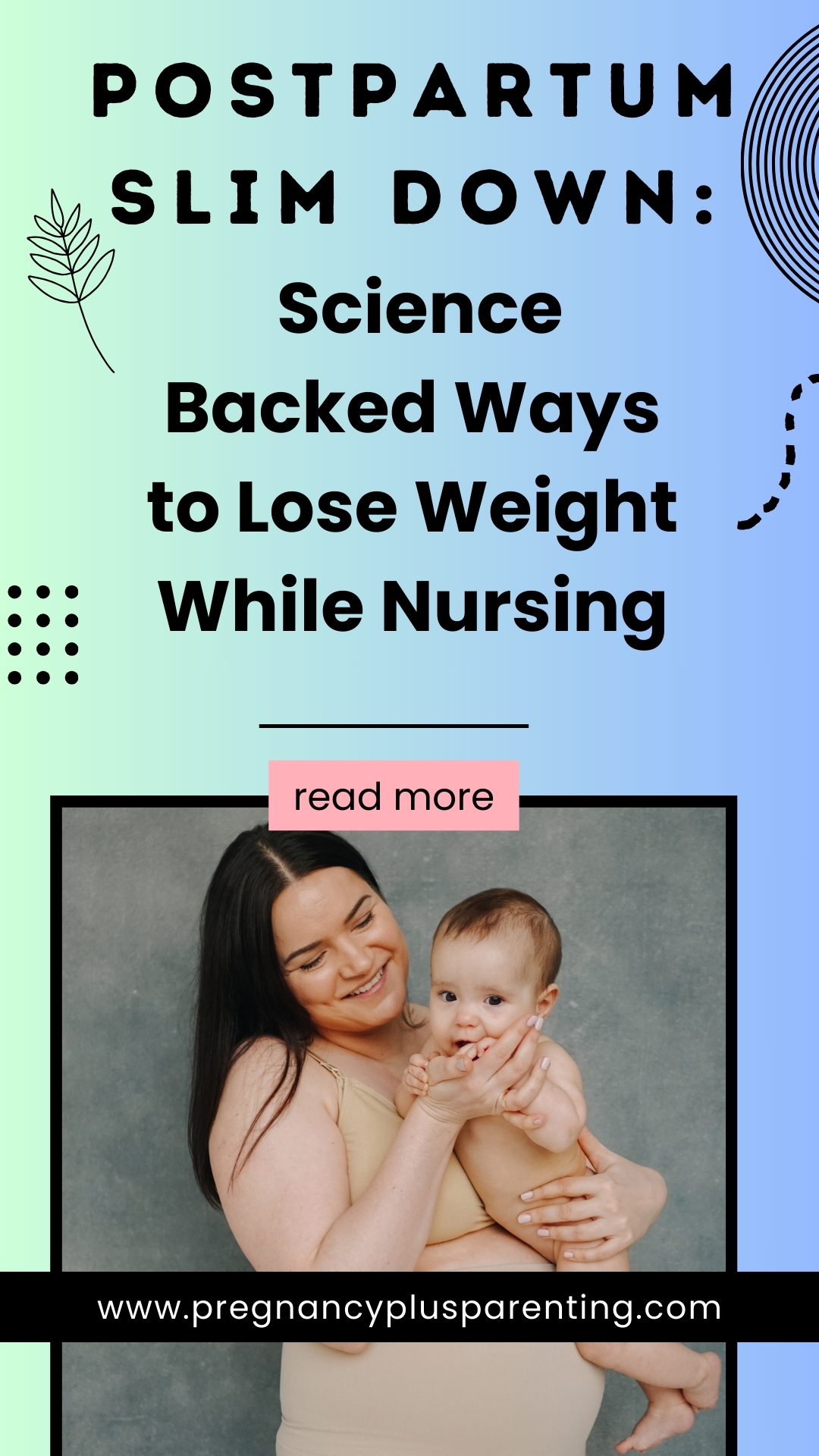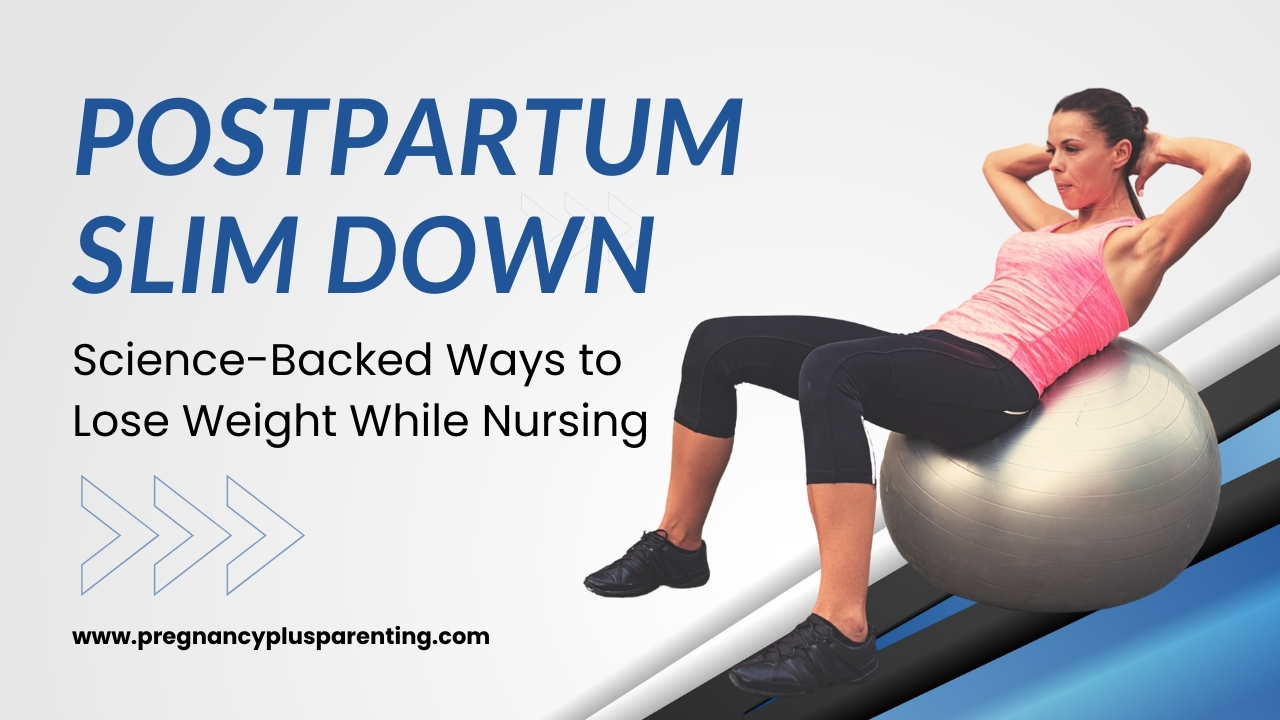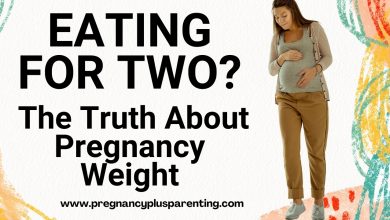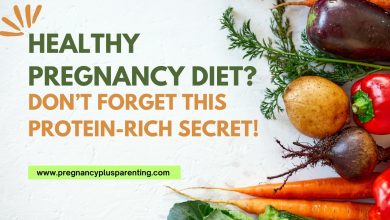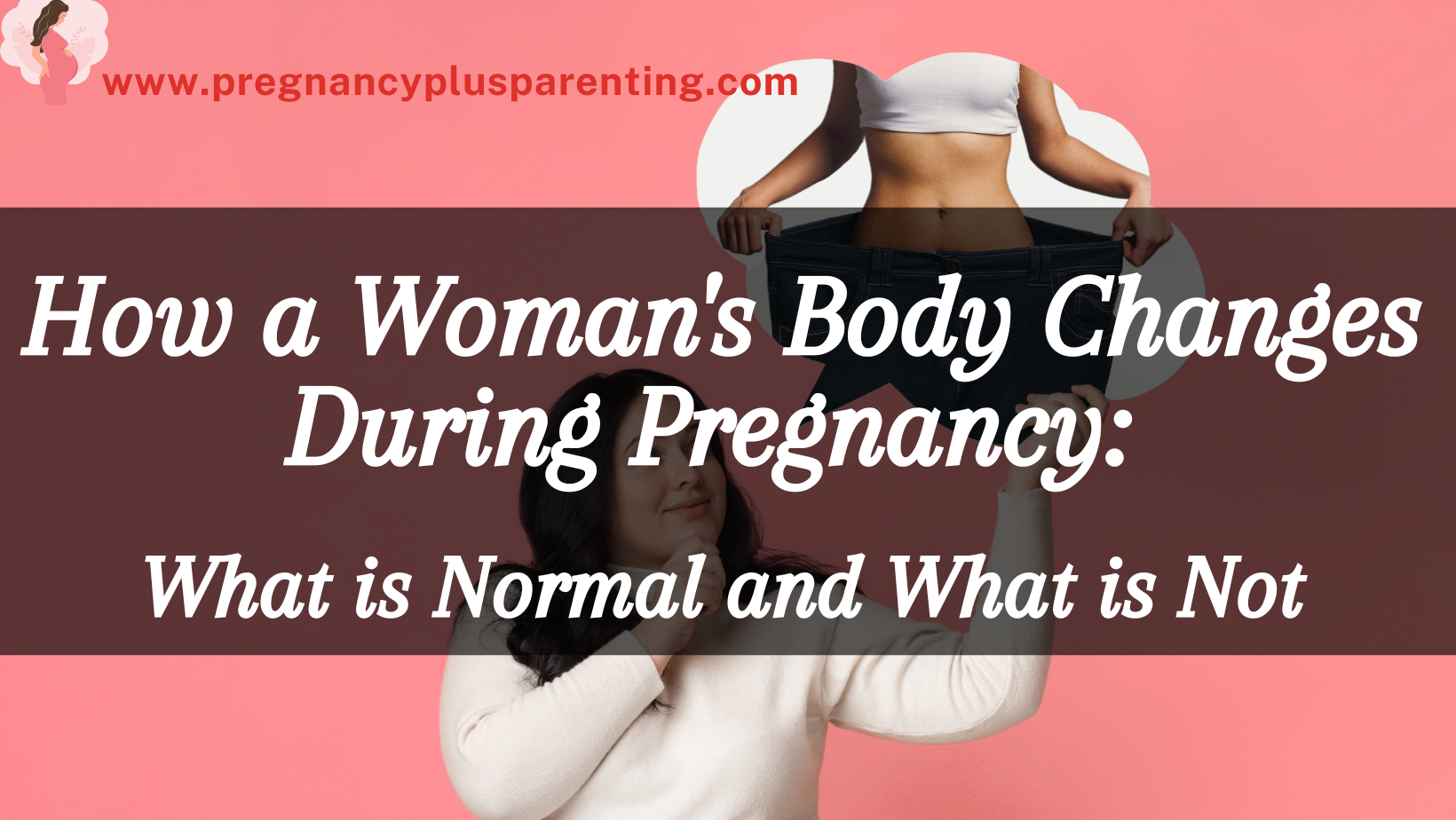Postpartum Slim Down: Science-Backed Ways to Lose Weight While Nursing
Losing weight while breastfeeding can be a little difficult, and you’re not the only one wondering about it.
Many women want to lose weight as quickly as possible after the birth of the baby and get back to their pre-pregnancy weight.
The truth is, however, that pregnancy weight was not achieved overnight and it is not going to go away anytime soon.
For most of us mothers, there was at least one moment after giving birth when we looked in the mirror to see our postpartum bodies and initially felt a wave of shock.
Most of us want to get our pre-pregnancy body back as quickly as possible, but losing those extra pounds after giving birth, especially while breastfeeding and feeling hungry all the time, isn’t always easy.
Your body has done an immense amount of work during pregnancy, and as it created another life and needed space for it, everything in your body expanded.
Your hips have widened, your chest has expanded, and fat reserves have built up.
All of this took 9 months, so you should give your body at least that much time to get back into shape.
In the first few weeks, your body needs time to heal so that it is possible to return to your old shape.
As frustrating as it may feel, and as strong as the desire to get back to your old bikini body is, you should keep one thing in mind: Your body has done an amazing job!
If your goal is weight loss, then you should give yourself and your body enough time to heal and recover, because growing the baby also took time.
Crash diets to lose pregnancy weight are a no-go during breastfeeding, as well as one-sided diets that impair the quality of breast milk.
It is completely natural for women to gain 10 to 15 kilos during pregnancy because, in order to provide the child with optimal oxygen, nutrients, energy and hormones, certain changes occur in the mother’s body.
The uterus expands, as do the breasts, and the amount of blood almost doubles, so the excess weight gained during pregnancy is not just fat deposits.
Losing weight while breastfeeding – prevention
To make it easier to lose weight while breastfeeding, you should think about the postpartum period while you are pregnant and be careful not to gain too much weight.
Losing weight after giving birth can’t happen fast enough for many women, especially those who gained too much weight during pregnancy or who already had too much weight on their bones before pregnancy.
Gaining a little more than the average 10 to 15 kilos is relatively harmless, but you should avoid becoming severely overweight.
Not only will losing weight after birth be easier if you don’t gain too much weight, but the birth itself will also be less dangerous.
Obesity is not only associated with difficult births because the child becomes too large for the birth canal and, if necessary, has to be delivered by caesarean section.
The excess weight also poses a risk of gestational diabetes, which can later turn into chronic diabetes.
In such a case, losing weight makes medical sense and is not just a matter of aesthetics.
But in order to feel good in your own skin again, you should avoid strict diets and excessive exercise and give your body and yourself a little rest and relaxation for the time being.
Losing weight while breastfeeding is a matter of patience
Although you are bombarded every day with the perfect bodies of celebrities and the like, who quickly regain a flat stomach, toned hips and buttocks, you should approach weight loss after giving birth with a little patience.
For young mothers after giving birth, the only goal seems to be to return to their original shape at all costs, but they do not always make the right choices and resort to crash diets or excessive exercise.
Since your body has changed a lot during pregnancy, not only externally but also internally, such as your water and hormone balance, it now needs time to return to its previous state.
Instead of focusing on the pounds, it is much more important for you to pay attention to a healthy and balanced diet and to increase your physical activity day by day.
Breastfeeding is a special time when you bond with your baby and develop a trusting relationship that brings health benefits to both of you.
Not only does breastfeeding provide a secure foundation for a unique bond between you and your baby, but your breast milk is also very healthy for your baby.
The unique ingredients in breast milk strengthen the baby’s immune system, protect it from infections and prevent chronic diseases, while breastfeeding reduces your risk of developing high blood pressure, breast and ovarian cancer and type 2 diabetes.
Breastfeeding mothers also generally lose weight much faster after giving birth. Depending on their individual hormone levels, breastfeeding mothers have a higher daily calorie requirement, which can range from 300 to 700 kilocalories.
You also need to change your diet to ensure that your baby gets enough nutrients such as vitamins A+B+E, proteins, folic acid, iron, magnesium, iodine and zinc, which are necessary for healthy growth.
However, it is important to note that if you follow a strict diet, your body will resort to fat reserves during this time, which in turn will affect the quality of breast milk and milk production.
While breastfeeding, you should not eat less or eat less, but rather pay more attention to a balanced diet and enough exercise so that you can provide your baby with sufficient nutrients that are essential for its growth.
It’s especially important now to give your body all the nutrients it needs. This includes the nutrients that are lost through breast milk.
In particular, it’s important to consume enough protein to maintain muscle mass. This is not only important for post-pregnancy exercise , but also helps prevent the yo-yo effect.
When eating, it is better to eat protein sources such as meat and fish rather than side dishes such as pasta or rice.
Healthy weight loss while breastfeeding
Young mothers should change their diet to a balanced and healthy diet during pregnancy in order to be able to lose weight easily after giving birth.
A healthy diet is important not only during pregnancy but also during breastfeeding.
You should provide your body with a balanced diet with sufficient protein, fiber, minerals and vitamins.
Vegetables, fruit, whole grain products, fish, low-fat dairy products and meat products support weight loss, although you should avoid fast food, carbohydrate sources (pasta, rolls, baguettes), foods high in sugar (sweets, juices) and foods high in fat.
On the one hand, these high-calorie foods make it more difficult for you to lose weight, and on the other hand, all the harmful substances contained in such ready-made products end up in your breast milk.
Just as during pregnancy, you should also ensure you drink enough fluids while breastfeeding. Replace sugary drinks, and instead of drinking a glass of juice, opt for tea (which is permitted during breastfeeding) or mineral water, although still water is best.
You should also avoid hidden sweeteners, as they are not only hidden in juices and sweets, they are also found in light products, which many people who want to save calories like to turn to.
These sweeteners cause an increased release of insulin in the body, which further leads to cravings.
Instead of skipping meals, you should eat regularly, varied and plentiful meals, with snacks being a healthy way to lose weight extra quickly. You should also try to completely avoid carbohydrate sources (rice, pasta, baguettes), at least in the evening.
Lose weight healthily while breastfeeding
As already mentioned, radical diets are taboo during breastfeeding.
To maintain milk production, you need to pay attention to your daily energy needs, which are slightly higher during breastfeeding.
When you go on a weight-loss diet, your body uses its fat reserves, and the harmful substances stored there get into your breast milk and ultimately end up in your baby’s body.
In addition, such diets carry the risk that your body and your child’s body will not receive vital nutrients.
A deficiency in iron, iodine, zinc or calcium leads to other problems and increases the risk of disease.
The high calorie consumption during breastfeeding makes it easier for breastfeeding mothers to lose weight, despite the slightly higher energy requirements, but this does not mean that non-breastfeeding mothers cannot also lose weight with a balanced and healthy diet and some exercise.
Can you lose weight while breastfeeding? – Sport
According to experts, a combination of sufficient exercise and a proper and healthy diet is the best way to lose the kilos after birth.
However, a healthy lifestyle is not only good for your bikini figure, but also improves your physical and mental health.
You can lose weight after giving birth through exercise, but you shouldn’t overdo it. Instead, give your body rest and enough time to recover.
It is best to start with slow training; longer walks, gentle stretching exercises for the abdomen and back, and pelvic floor exercises twice a week are sufficient to boost weight loss.
After the first few months, you can start with moderate sports such as cycling or swimming, although your baby will already be big enough to participate.
However, after a cesarean section, you should wait a little longer before exercising.
Before you start any sport or other activities after a cesarean section , it is advisable to first discuss it with your midwife or gynecologist.
They will be able to tell you when the right time is for sports, postnatal exercises and the like.
Breastfeeding mothers must be aware that the most important thing is to take care of their bodies and that just ten minutes of “training” a day is enough to get rid of the fat deposits left behind after pregnancy.
Being active for ten minutes a day doesn’t take much time or effort, but it does wonders for your well-being.
If you are unable to attend a postnatal exercise class, you can ask your midwife to put together an exercise program for you to do at home.
This way, you can freely plan your time with your baby and spontaneously exercise whenever you find the time. Has your baby just fallen asleep?
Instead of scrolling through the internet, start the video with the exercises and get going – after 10 minutes, your mind and body will be happier, because during training the body is known to release happiness hormones.
And what does your baby need more than an active and healthy mother? Whether you fit into your old jeans is unlikely to matter to your baby.
After the first few weeks, light and short activities are perfectly sufficient, although it is highly recommended to increase the duration and intensity after the first few months and during the later breastfeeding period.
Once your body has healed, you can strengthen your body and get back into shape with cycling, Pilates, yoga, swimming, and other appropriate sports.
In the period immediately after birth, you should avoid more extreme sports, including jogging, aerobics, ball games and generally all sports that require a lot of strength and endurance that your body does not yet have.
The problem is not only that it may be too strenuous for you to keep up during this time, but the risk of injury is also greater immediately after birth.
As mentioned above, with regard to the right timing and type of sport, it is best to contact your gynecologist or midwife, who will advise and guide you.
Abdominal exercises should be avoided for the first time shortly after birth. It’s better to wait until your abdominal muscles have returned to normal.
If you start abdominal exercises too early, you increase the risk of diastasis recti (the stretching of the straight abdominal muscles), which requires the muscles to recover.
Women who were already very active before pregnancy and exercised regularly can, of course, start training much earlier, because their bodies are able to adapt to physical strain more quickly than women who are not athletic.
Breastfeeding should not be an obstacle to exercise; on the contrary, exercise is good for you, your health and ultimately your baby.
However, you should still make sure to exercise after breastfeeding because the breasts are much lighter and because studies have shown that the taste of breast milk changes slightly immediately after exercise.
Your baby may refuse to suckle after exercise.
Breastfeeding mothers should initially avoid extreme sports and competitive sports, as strenuous physical activity can lead to a weaker milk flow and even stop milk production completely.
Losing weight while breastfeeding – tips
The days when moms had to stop breastfeeding to pursue a sport are long gone. You can get fit with your baby, too.
It is advisable to give your body some rest and bond with your baby during the first few months.
But if the baby is already a few months old, your lack of sleep has reduced, your daily routine has settled down, you have mastered all the breastfeeding positions and feel ready for any situation in public, nothing stands in your way.
You should avoid extreme sports, but there are many fitness classes offered for mom and child, among others.
Mothers meet other mothers with children for training. New acquaintances are made, experiences are exchanged, training is done, gymnastics is practiced, and a connection with the baby is established on a completely different level.
If classes aren’t for you, you can easily go jogging or skating, and an off-road stroller is very advantageous. This way, you can exercise while your baby enjoys the ride in the fresh air.
Final thoughts
Greetings to all the moms who are worried about a few extra pounds.
Excess pounds are simply part of every birth and can be managed with breastfeeding, a change in diet and regular exercise.
It is advisable to start dealing with the weight gain within the first year, as it has been proven that women who return to their original weight more quickly do not have problems with their body weight later in life.
There are explicit warnings against one-sided nutrition, strict diets, too much exercise and physical strain.
Because these radical methods of getting rid of “baby fat” can be dangerous.
Losing weight slowly but healthily while breastfeeding after giving birth requires patience, but it is not harmful and protects your health and that of your baby.
A little discipline and a lot of patience and you’ll be able to wear your favorite jeans again and feel good in your own skin again.
